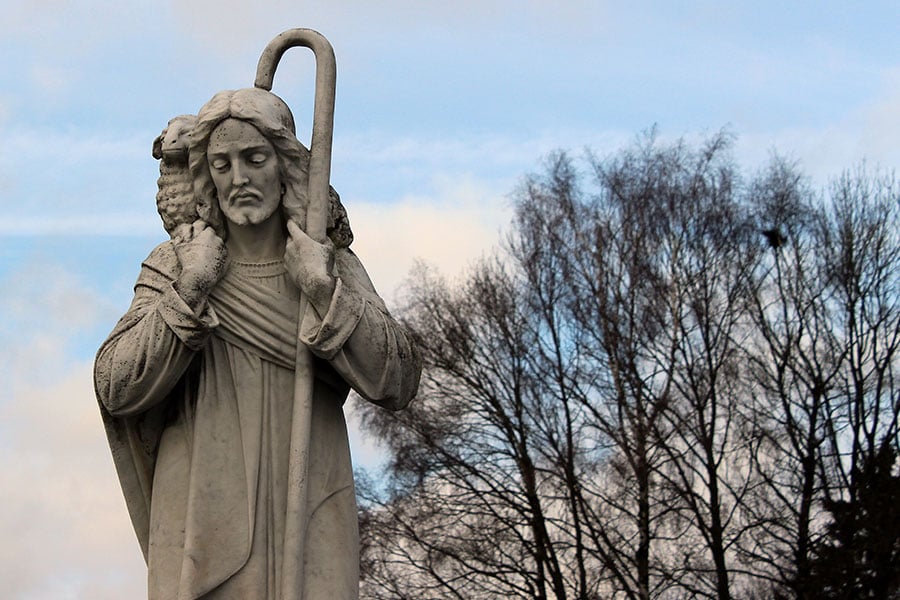A good shepherd in uncertain times

Pixabay/Myriam Zilles
Lately I’ve been thinking a lot about the parable of the lost sheep. You might know the story: Jesus realizes that one of His flock is not with the others and He leaves the 99 to find the one that is away from the fold and is most likely in trouble. This year certainly has had more than its fair share of troubling times, and this “lost sheep” and the care of the shepherd sheds some light on a path forward.
Why would a shepherd leave the 99 to go after the one sheep? He has 99, what’s one more? Doesn’t He know the adage that a bird in the hand is better than one in the bush, let alone 99 in the hand? But the shepherd goes after the one because to Him every single one is special and deserving of the safety the 99 are enjoying.
This story unveils a deep and abiding truth about what it means to be human. “‘God created man in His own image, in the image of God He created him, male and female He created them.’ Man occupies a unique place in creation: he is ‘in the image of God’” (Catechism of the Catholic Church, 355). And because of this truth, every single person on the planet is due the same dignity because each is an image of God.
The Catechism goes on to say: “Being in the image of God the human individual possesses the dignity of a person, who is not just something, but someone” (Catechism of the Catholic Church, 357, emphasis added).
Thus, when any of these “someones” is at risk, be that from a pandemic, racism, injustice, abuse, illness, discrimination, or any of the other innumerable atrocities that can befall one of the human flock, the heart of the Good Shepherd leaves those in safety and seeks the one in need.
What motivates the Good Shepherd to leave the 99? Put simply, it is His nature: “God is love” (1 John 4:8). John takes this notion to the next level when he says: “Beloved, if God so loved us, we also must love one another” (1 John 4:11). Thus, we are called to do unto others what God does for us.
But, what exactly is love? After all, I love pizza, my friends, my wife, and God. Certainly, God is not asking us to treat our neighbor like pizza. St. Paul beautifully reveals to us what love is and is not in chapter 13 of his First Letter to the Corinthians.
He says love is not: jealous, pompous, inflated, rude, self-seeking, or quick-tempered, and it doesn’t brood over injury or rejoice over wrongdoing. Conversely, St. Paul says: Love is patient and kind, it rejoices with the truth, bears all things, believes all things, hopes all things, endures all things, and last of all, love never fails. These are the marching orders of the faithful.
I don’t know about you but there are a lot of complicated emotions swirling around within me and I often do not know the right thing to do, or say, in response to the myriad of issues that 2020 has seen. Yet, I try very hard to have the guiding force behind my words and actions be patience, kindness, and truth. I try even harder to bear, believe, hope, and endure through all the trials of these times. I do this, especially when it is hard, because I believe deeply that love never fails.
I cannot see a way through all the upheaval of this year, but what I do see clearly is a Good Shepherd fiercely and unflappably going after each and every person in trouble and bringing them back to the safety of the sheepfold. I also see Him looking over His shoulder right at me and saying the words that are at once daunting and thrilling: follow me.
